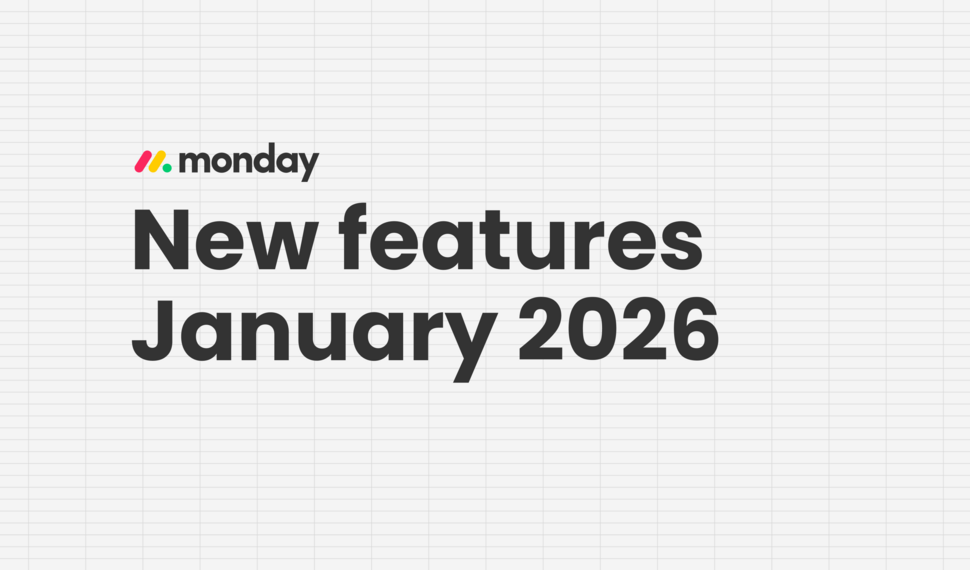Templates
What are spreadsheet templates?
Templates are the foundation of Spreadsheet Gorilla. They define the spreadsheet configuration and how monday.com board data is selected, transformed, and exported. Depending from which monday.com board you create a new template, its default configuration will align with the current board column structure. But you can always mix and match boards from across your workspace to your needs.
- Rename a template by clicking its name at the top center
- Toggle template visibility by clicking the lock icon next to its name
Worksheets
How to use worksheets
Worksheets in Spreadsheet Gorilla work like in Excel or Google Sheets. You can + add up to 6 worksheets to a spreadsheet template. Each worksheet can contain one or more boards. You want to use multiple worksheets to:
- Combine differently structured boards in one spreadsheet
- Add subitems of parent boards in a separate worksheet
- Calculate with advanced formulas across multiple boards
To add or append another board to a worksheet, click the + Add board or + Append board button. Then search for your designated board and click + to add it in your current worksheet. In case you want to add subitems of a specific board, simply search for Subitems of.
Board filters
How to use board filters
Board filters in Spreadsheet Gorilla let you include or exclude specific board items per board in a template. A board filter is build up upon one or more rules. Each rule is based on a specific board column, followed by operators and values. In addition you can choose from an AND or OR condition that is applied to your rules, and optionally you can define an Ascending or Descending column based sorting.
How to create rule based filters
- Click the
Add filtersbutton on the designated board - Then select the column from which items should be filtered
- Choose operators and set values as shown on screen
- Click
Add ruleand repeat the steps 2 to 3 if needed - Now set a condition logic and a column sorting
- Click the
Confirmbutton to save your filters
Advanced settings
How and when to use advanced settings
Advanced settings can be accessed and configured per board in your spreadsheet template. These settings have two purposes, either enabling specific options on a board, or for debugging reasons in case you run into issues that might be caused by a certain board column or a whole board.
How to access advanced settings
- Click the
☰button on the designated board - Choose from the options as shown on screen
When to use which advanced setting
- Enable column names
Use this to inherit and embed the board column names above the board items in the exported spreadsheet. You likely only want to enable this on the very first board of your configuration. - Enable dynamic board
Use the current board as a dynamic board for fetching items based on the context where the export is triggered. Learn more about how and when to use the dynamic board feature here. - Enable formulas via API
Use this to resolve native monday.com formula columns via the monday API, instead of resolving them client sided as by default. Learn more about this is experimental feature here. - Disable board
Enable this option to completely skip this specific board during export to improve performance or to debug potential issues. - Disable mirror columns
Use this to skip all mirror columns on this specific board during export to improve performance or to debug potential issues. - Run diagnose
Troubleshoot issues on the board by running a diagnosis and downloading a report. Learn more about how to troubleshoot here.
Message manager
How to use the message manager
The message manager in Spreadsheet Gorilla is used to create an email or notification text that is being used in export automations. You can Create up to 8 messages per spreadsheet template. Each message consists of a subject, message text, and message name which is used for reference in the target automation.
How to access the message manager
- Click the
Message managerbutton above your configuration Createa new message and fill out all textfields on screen- Click the
Savebutton to save your automation message
Did you know?
The message text can contain advanced formulas, where the calculated value is being displayed right in the email or notification. This is handy to summarize specific key metrics.
Organizing columns
How to manage and map columns
Organizing columns in your spreadsheet template is straightforward. By default any added board has a start configuration inherited from its board structure. Columns can be reordered, added and deleted. Further you can map board columns to specific spreadsheet columns by changing the target of the board column.
Available column types
- Board column
Default selection that refers to a column from the board. - Custom formula
Choose this to use a custom and advanced formula. - Empty column
Choose this to add extra space in between columns.
How to access column settings
- Click the
Column A...Column Zbutton - Adjust all the settings to your needs
- Click the
Confirmbutton to save
Available column settings
- Column name
Overwrite the original board column name with a custom one. - Transformers (column specific)
Convert the value of a numbers column to plain text. - Font settings
Change the columns font, font size and adjust its appearance. - Cell settings
Align the column value as needed and apply a background color.
Preview spreadsheet
How to preview your configuration
Previewing your spreadsheet configuration is an essential step in the process of setting up your template. Use it to ensure your configuration works as intended, and the spreadsheet output aligns with your expectations.
How to access the preview
- Click the
Previewbutton in the top right app header - Double check the output across all worksheets
- Repeat the steps above as long as needed



